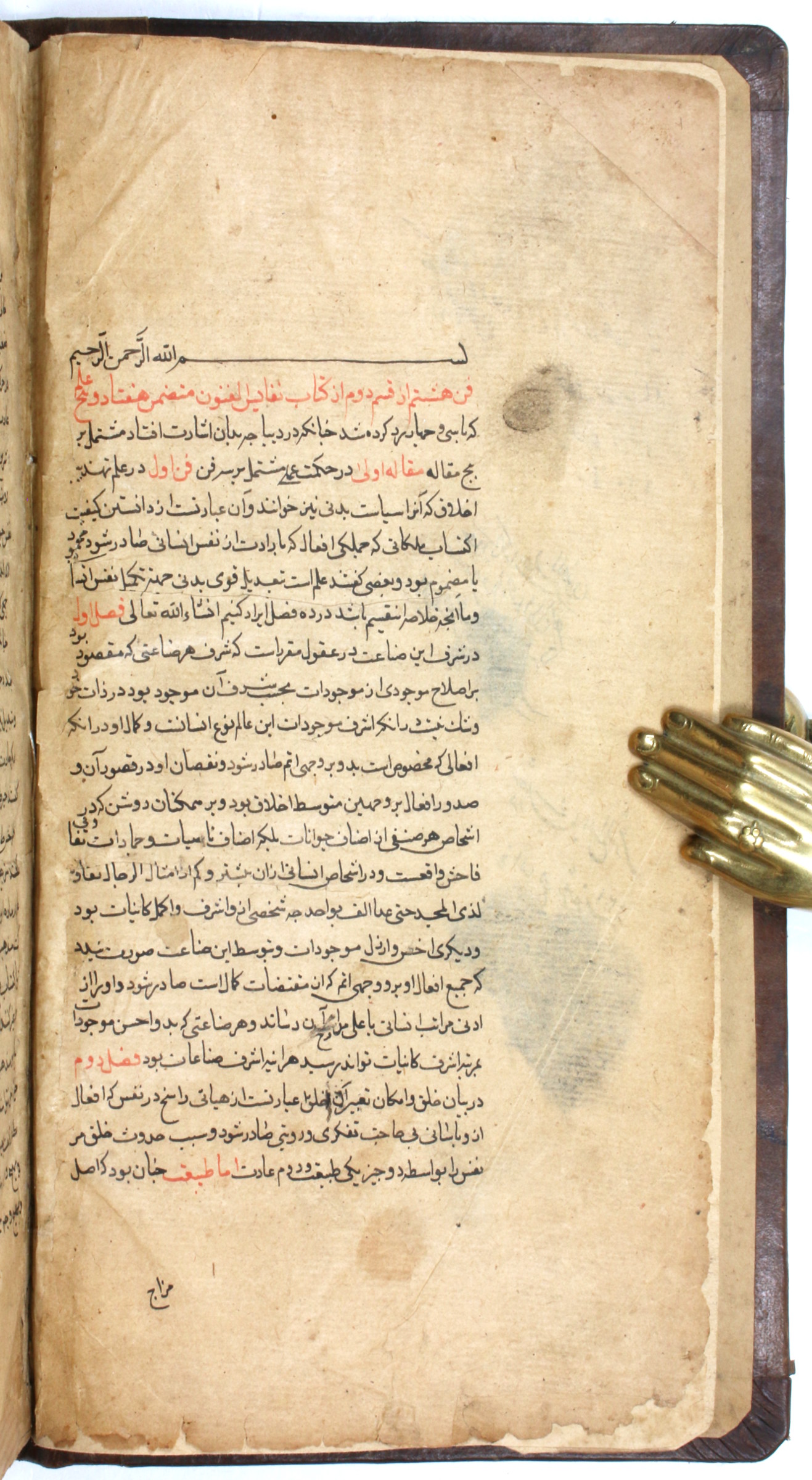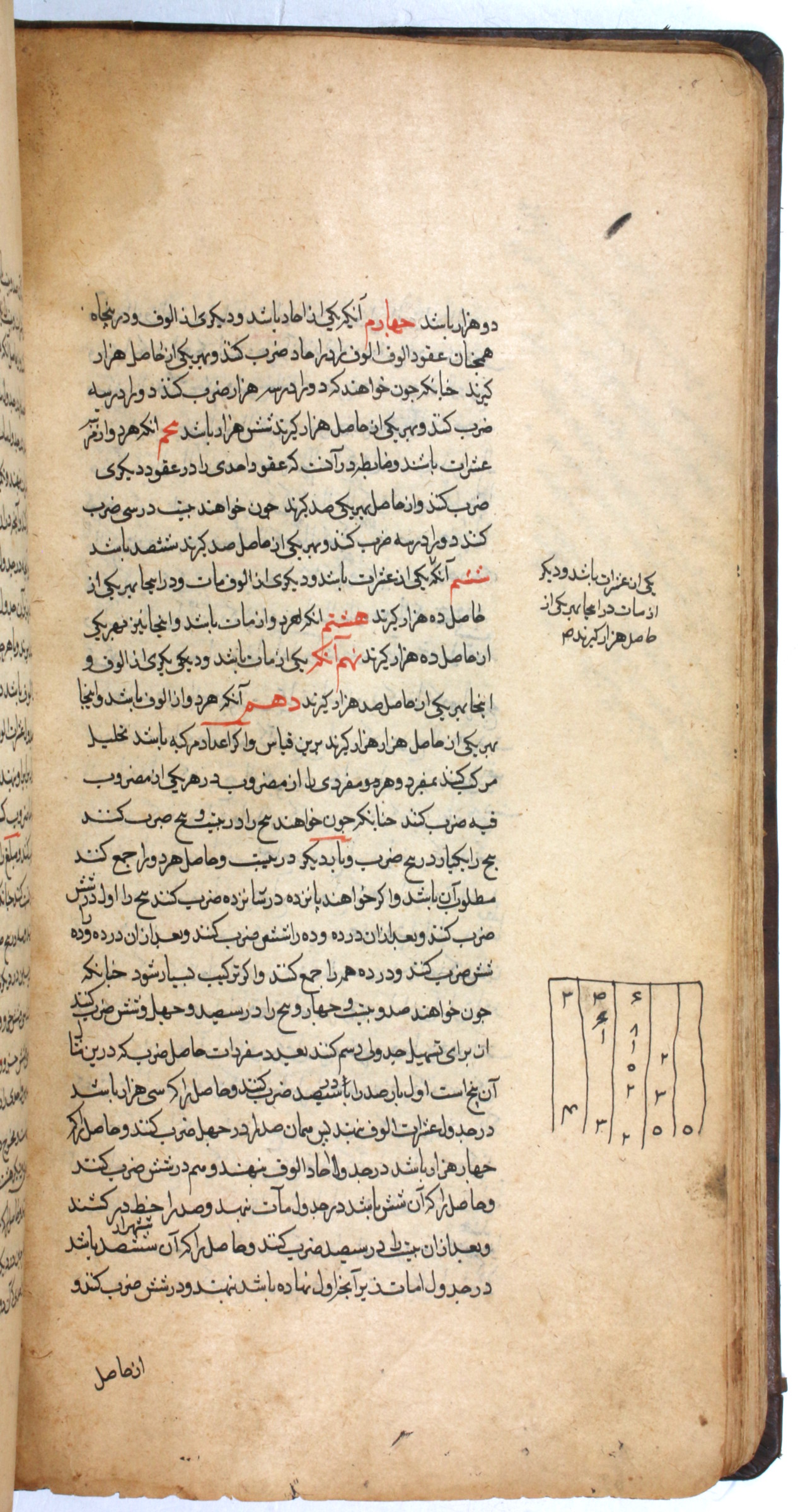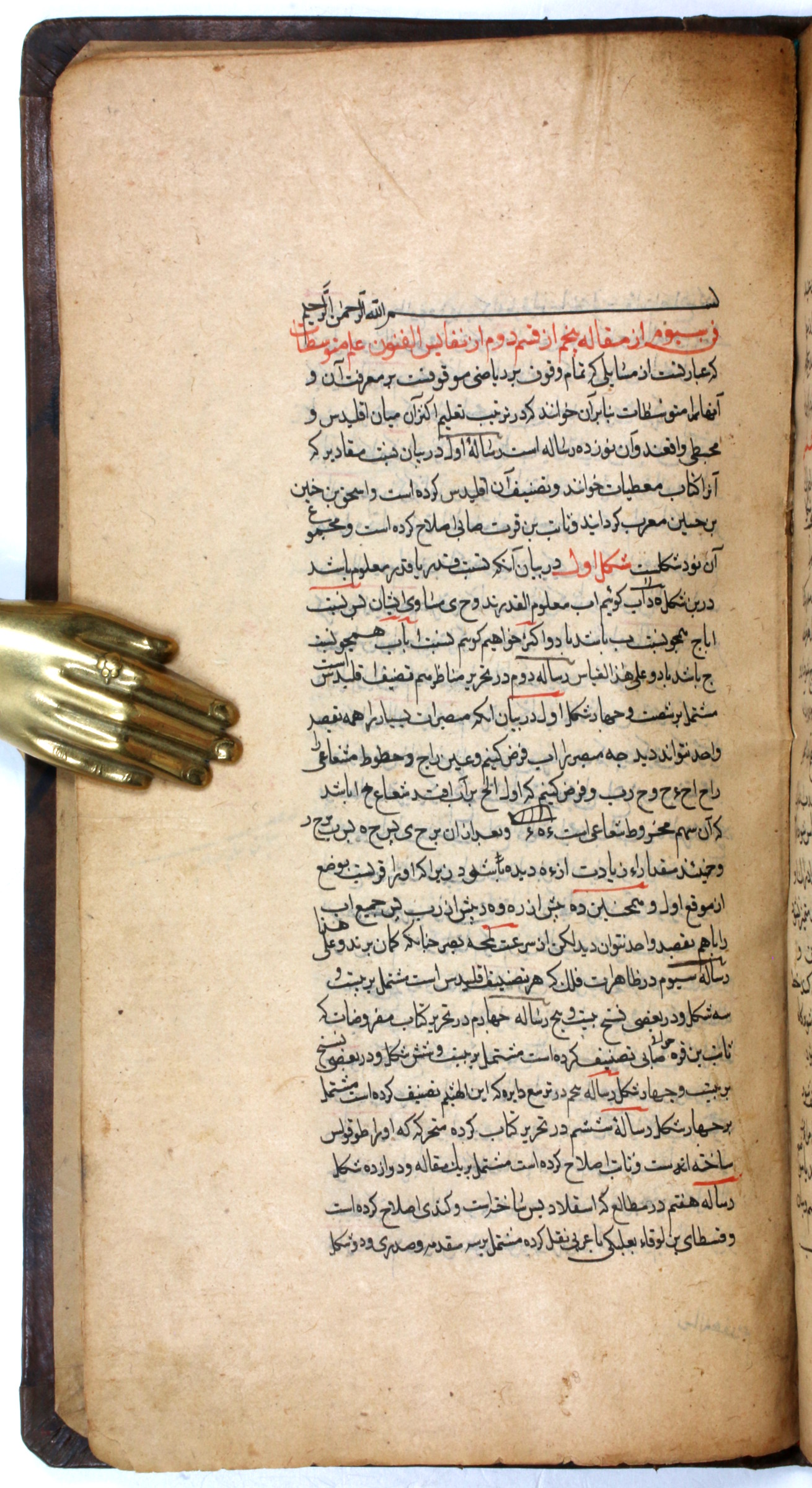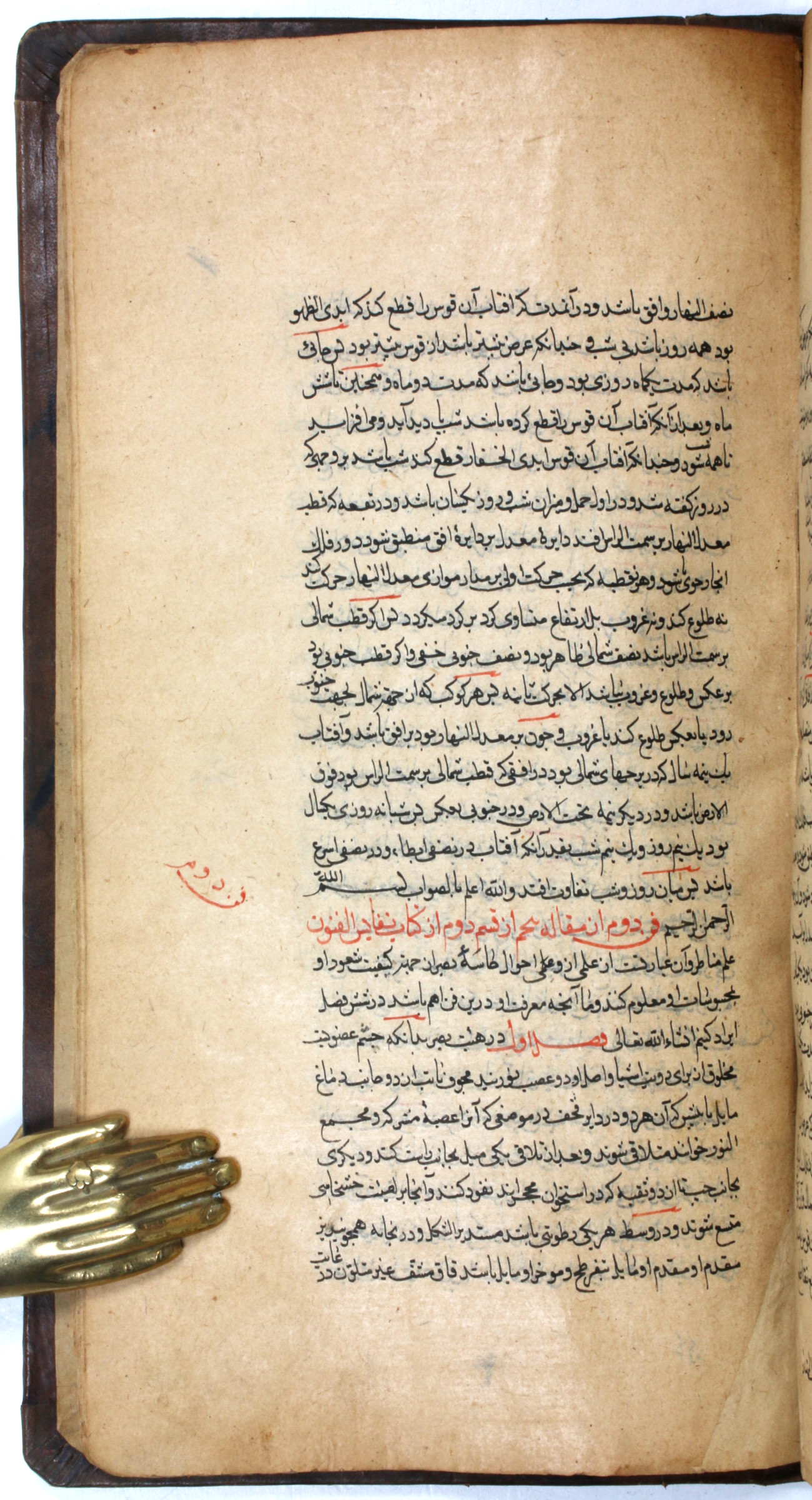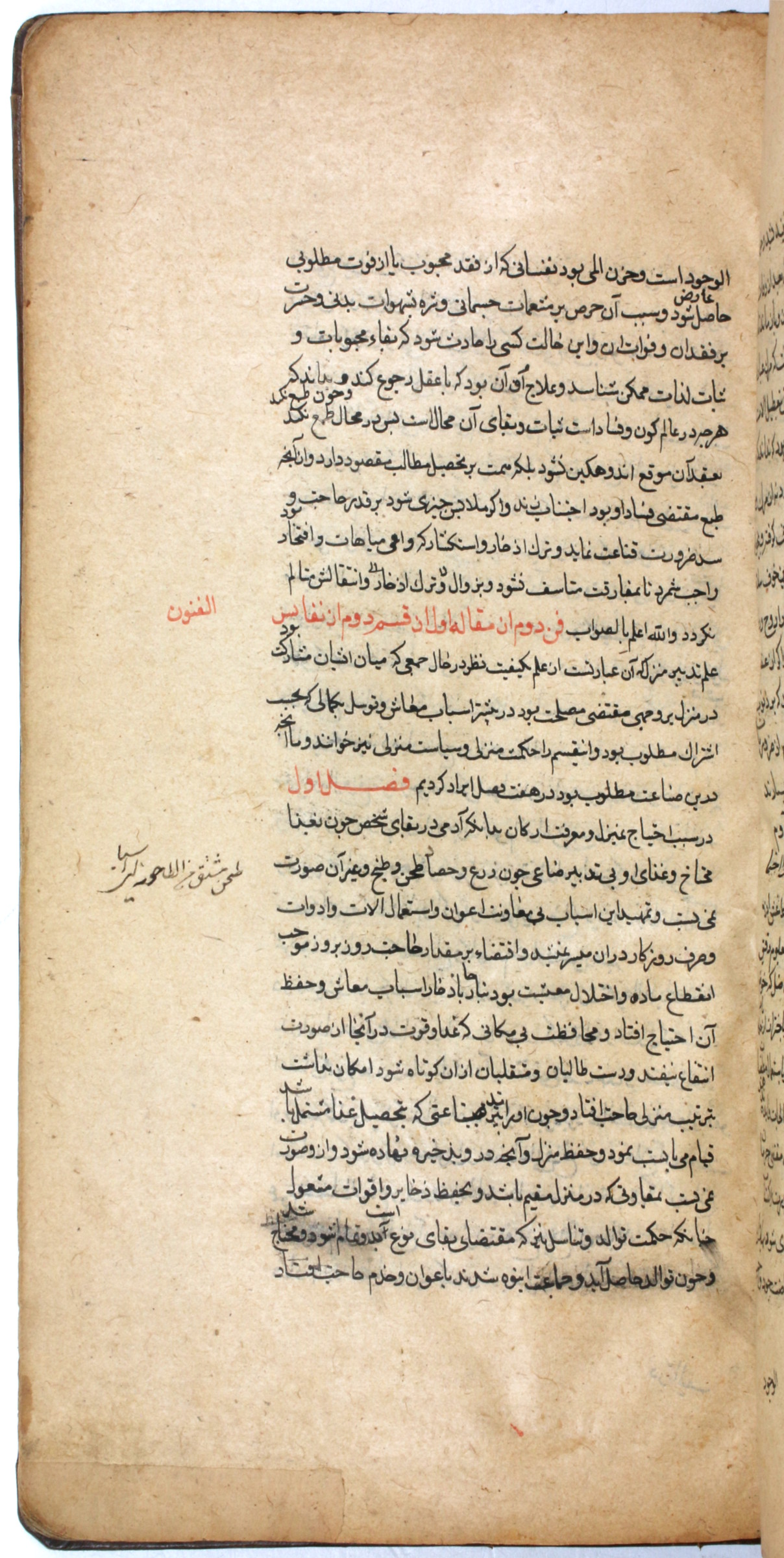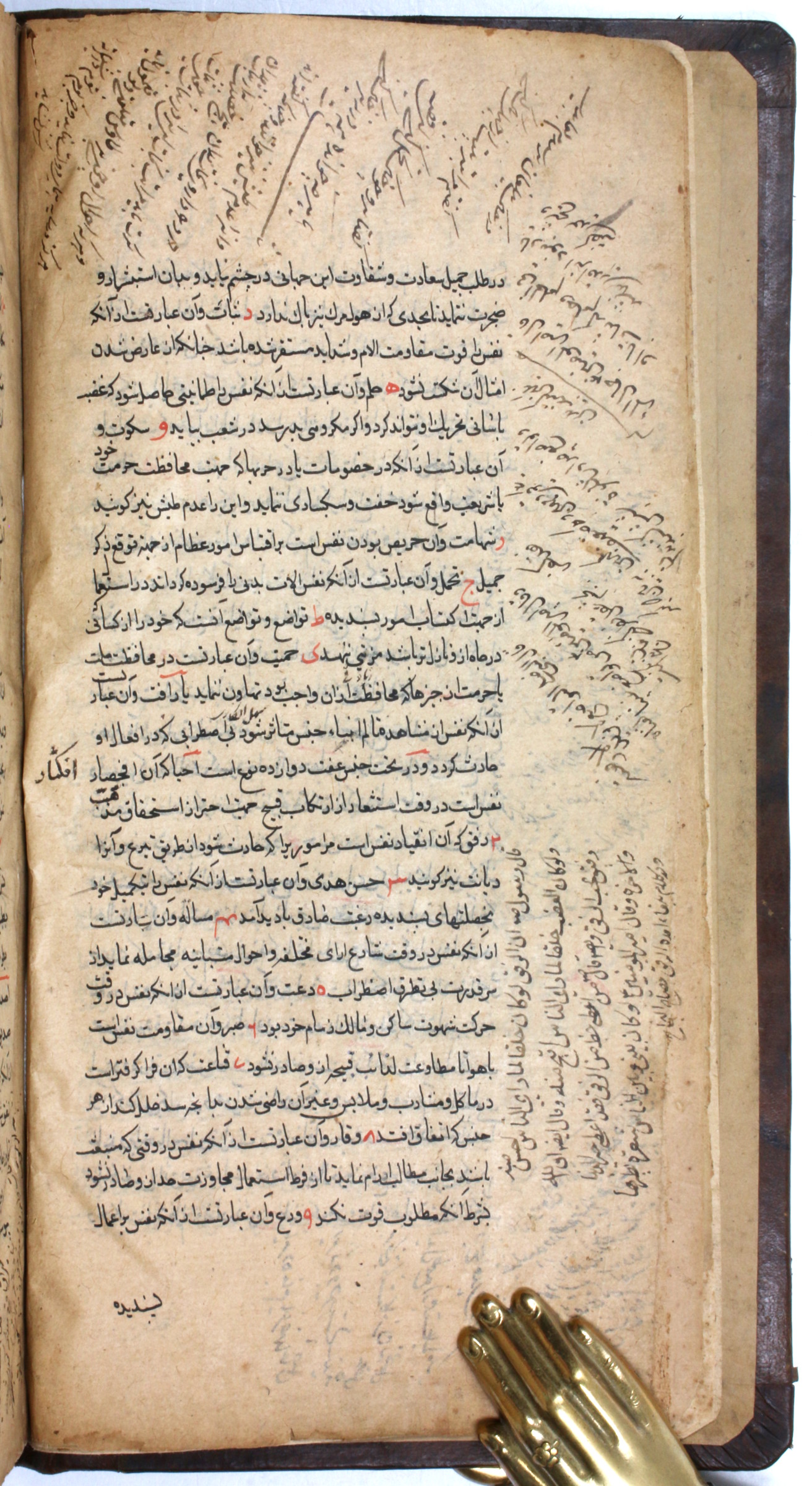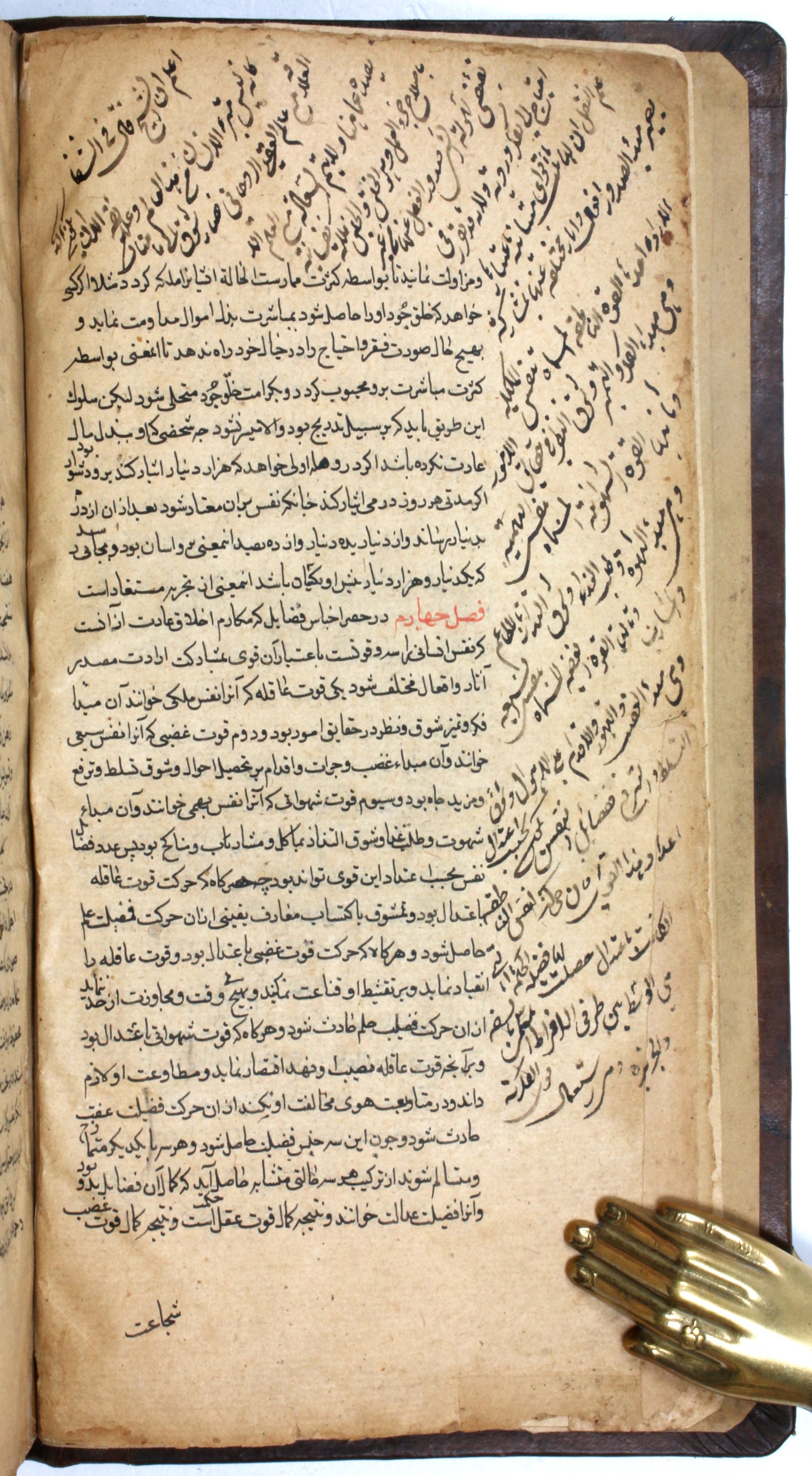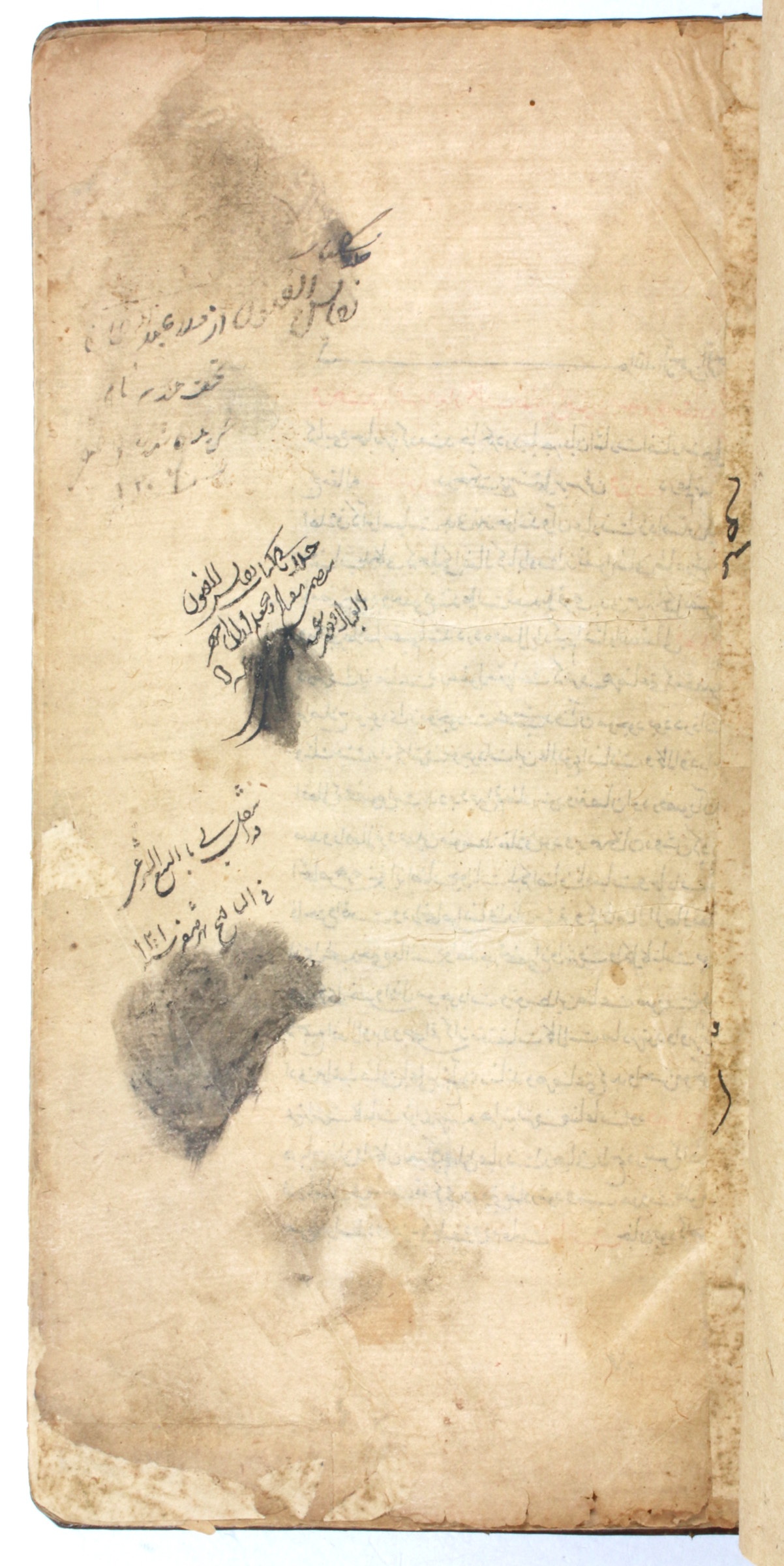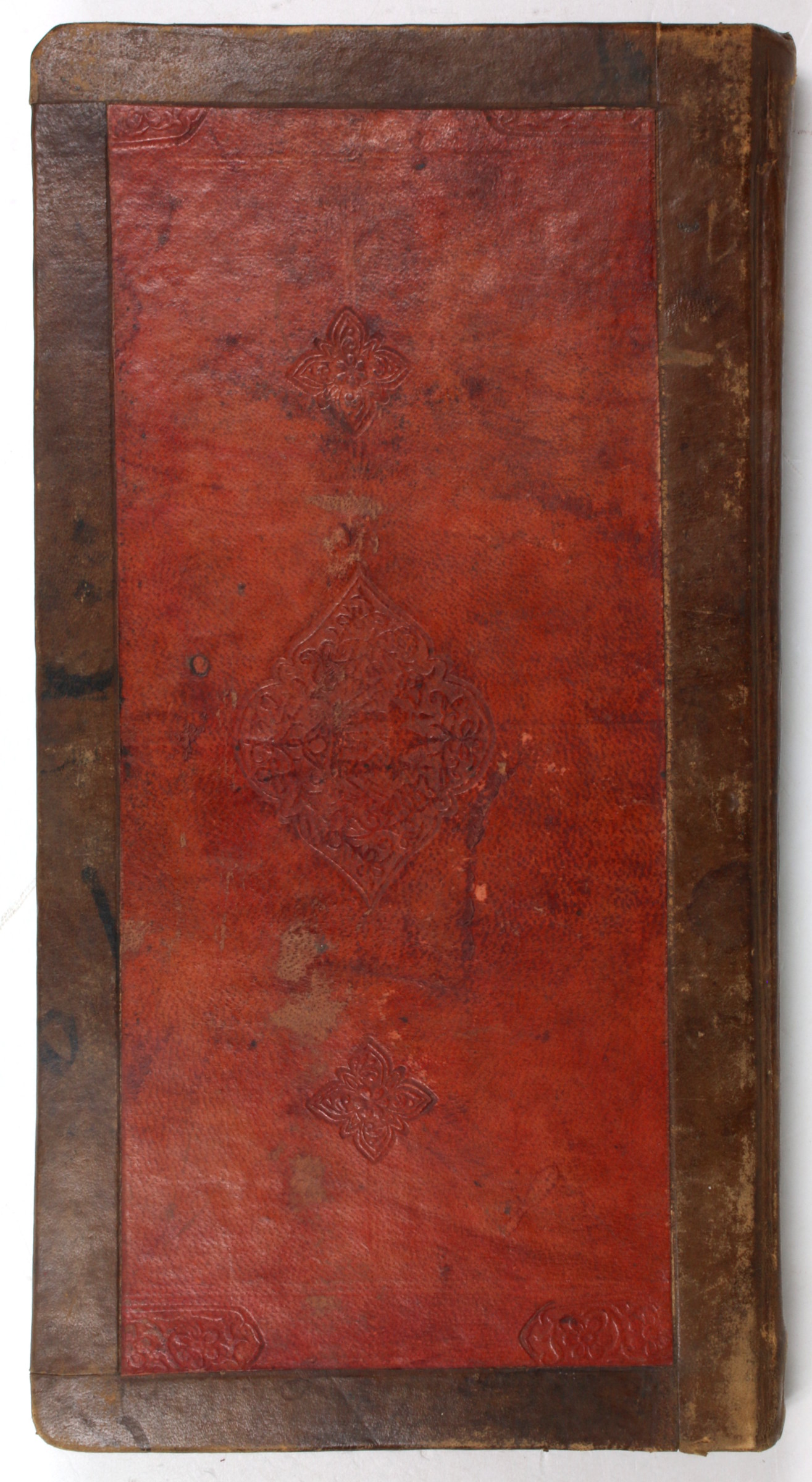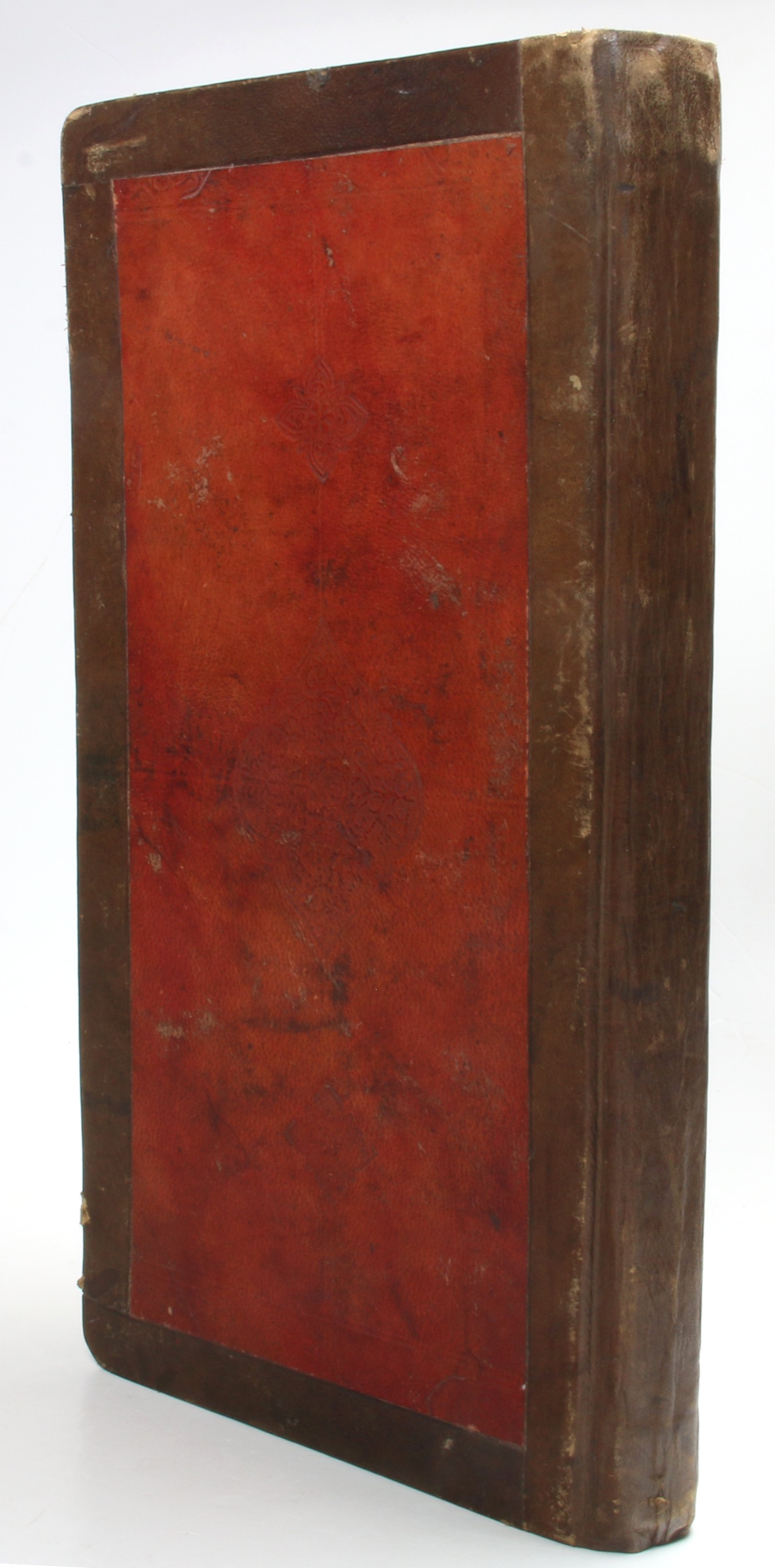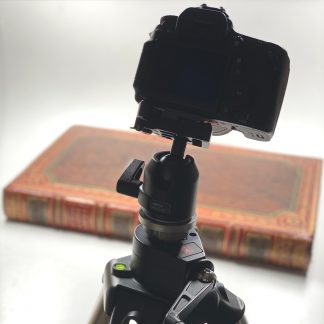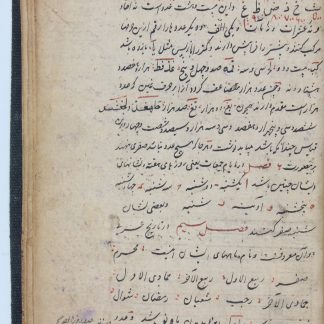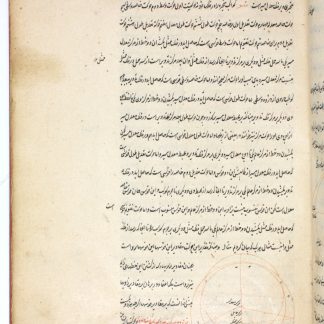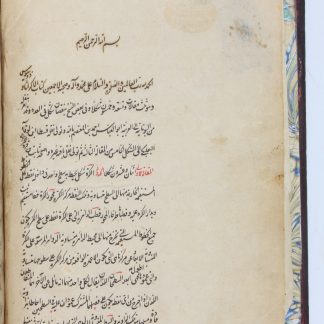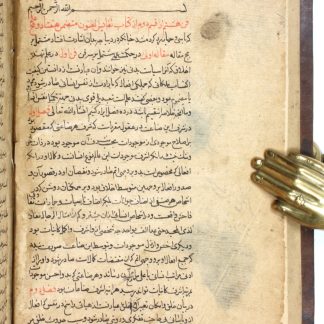From metaphysics to medicine: 17th century Persian science
Nafayis al-Funun [Treasures of Sciences].
Tall 8vo (147 x 276 mm). 203 ff. Persian manuscript on paper. Black naskh script with important words and phrases, as well as numerical digits, picked out in red. 19th century red morocco and brown leather.
€ 9,500.00
A treasure trove of scientific knowledge in Persian, little studied especially in the West, "Nafayis al-Funun" is an encyclopedic collection split into "new" and "old" sciences by the 13th century Iranian scholar Muhammad bin Mahmud Amuli. The present manuscript comprises this second volume of "Nafayis al-Funun", the "old" sciences, which formed the backbone of medieval and early modern Muslim thought, and of Western science as we know it today. In the five chapters of the "old" sciences volume, all of which are present here except for the last four subsections of chapter five, Amuli demonstrates his mastery of the breadth of human thought. He discusses logic, metaphysics, geometry, astronomy, arithmetic, medicine, music, alchemy, the properties of objects, the science of breath ('Ilm-i Damm), optics, algebra, constellations, astrolabes, and the form of celestial bodies. Intermixed, and not considered separate fields, are astrology, dream interpretation, and charms. In short, all the ways of studying the world, from the metaphysical to the mundane, are presented in tidy Persian script for the waiting scholar. Blank spaces have been left for diagrams which were never added, but in one case the scribe or an early reader added their own geometry sketches in the margins, working out the problems presented in the text. While its original colophon is not present, a later one was added, along with a 19th century ownership inscription; the text itself appears to be 17th century.
Ownership inscription on the colophon is dated 1307 H (1889/90 CE).
Lacks the last four parts of Chapter 5: the Science of Correspondence of Numbers (‘Ilm-i Wafq-i A‘dad); Geomancy (‘Ilm-i Raml); Sagacity (‘Ilm-i 'Hail); the Science of Pleasantries (‘Ilm-i Mala'ib). Minor chipping to bottom margins of a few leaves, and one or two paper repairs; in good condition.

